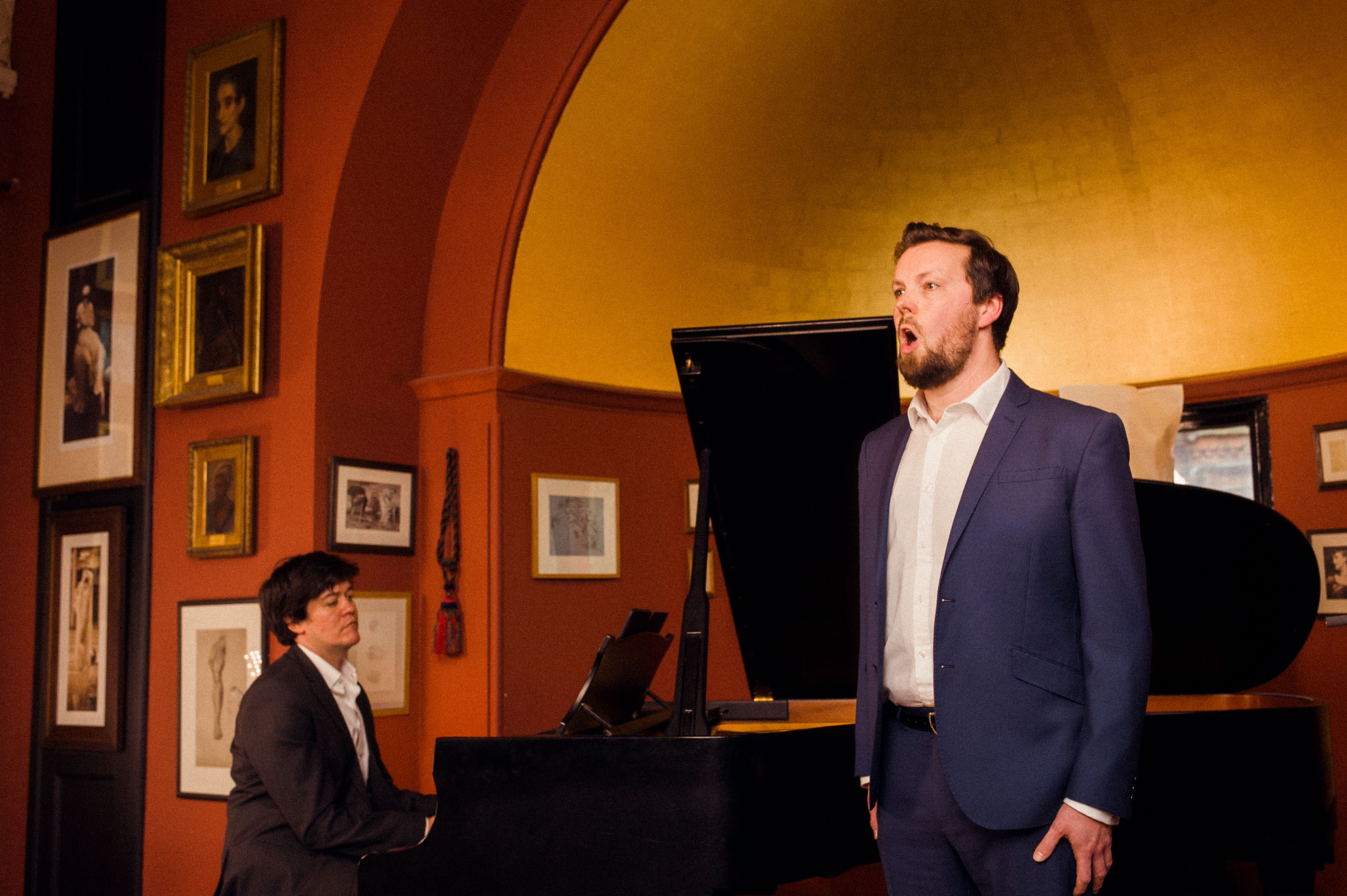The House of Life
-Ralph Vaughan Williams/Dante Gabriel Rossetti
Opera Holland Park
There are at least three good reasons for catching this short film from Opera Holland Park. Firstly, it is pleasing to encounter a work which doesn’t get many outings. Secondly, the rich resonance of David Butt Philip’s tenor voice is stunning. Thirdly, the musical rapport between him and pianist James Baillieu hits you between the eyes, especially during rubato passages.
 The House of Life is a song cycle setting by Ralph Vaughan Williams of six of Dante Gabriel Rossetti’s most heartfelt love sonnets. RVW wrote this in 1903/4 when he was in his early thirties. The poems, addressed to Rossetti’s troubled wife Lizzie Siddal, who died in 1862, had been published twenty years earlier.
The House of Life is a song cycle setting by Ralph Vaughan Williams of six of Dante Gabriel Rossetti’s most heartfelt love sonnets. RVW wrote this in 1903/4 when he was in his early thirties. The poems, addressed to Rossetti’s troubled wife Lizzie Siddal, who died in 1862, had been published twenty years earlier.
Early RVW it may be but many of the hallmark intervals and harmonies are already there, especially in the third song Love’s Minstrels. The poems are through-set: lines sung one after another like a recitation in music without any of the repetition you get, for example in Baroque settings. Consequently they seem very direct and focused.
Philip delivers the big intervals, including octaves, with charismatic eloquence in Heart’s Haven and brings both passion and precision to Death in Love, with its fanfare intro and heavy chords for the dramatic climax.
James Baillieu, whose music is bravely on a tablet, has a terrific range of moods from a thoughtful, right hand introduction to the tortured ebullience which drives several of these pieces.
Leighton House, where this film was made, has a very warm acoustic which really adds an extra dimension to the recital. It was an appropriate choice, too, since it is very close to Holland Park and Frederic Leighton and Rossetti were friends.
Rossetti’s paintings are almost as well known and loved as Leonardo da Vinci’s or Rembrandt’s. He was also highly acclaimed as a poet in his own day. I have to say that his verse hasn’t stood the test of time very well. There’s only so much “deathless dower” and “hurtling harms” that a 21st century listener can take. That could just be why this work isn’t performed very often.
Susan Elkin
